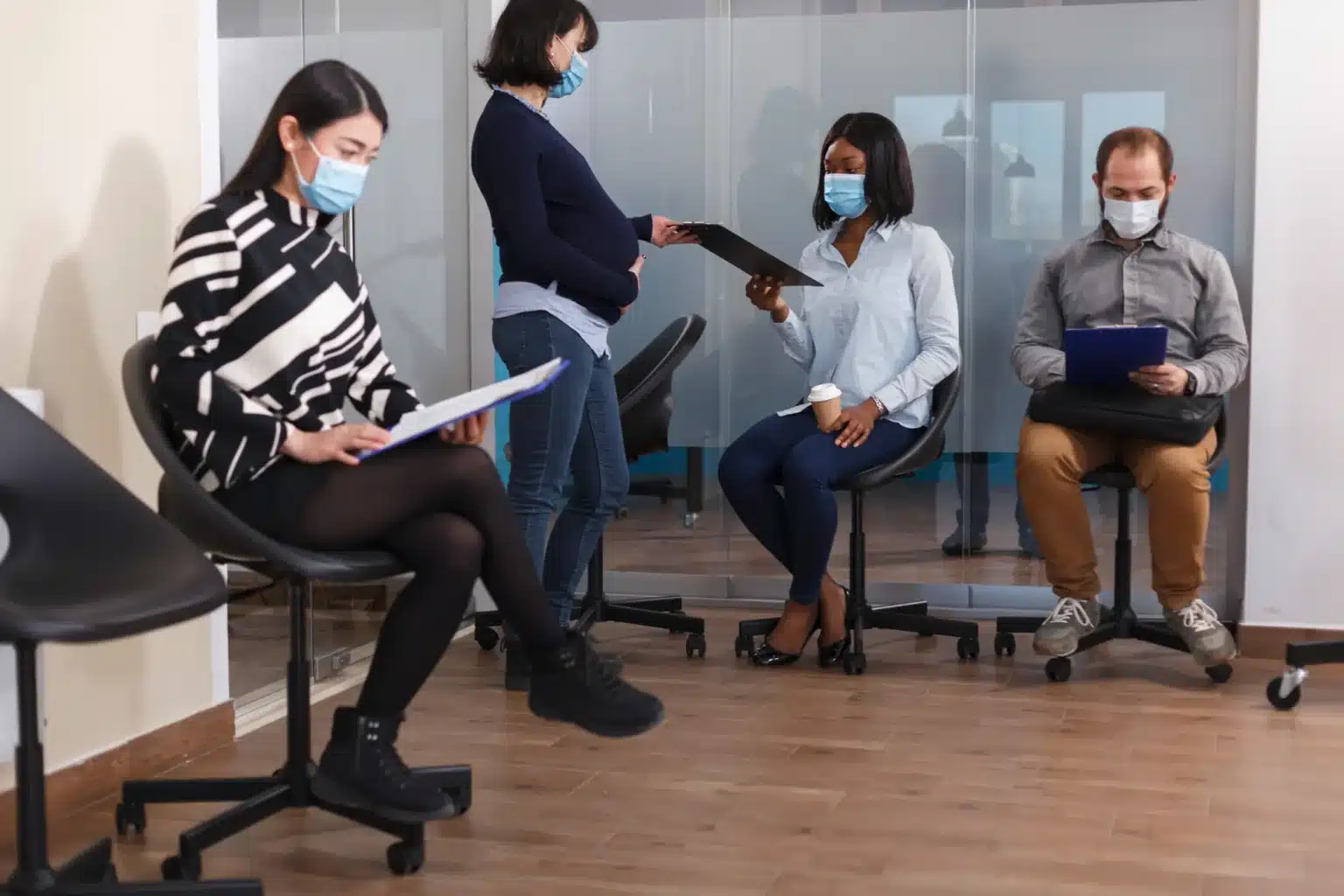Learn more about:
Flu Vaccine
Recommended for: Individuals at risk of flu complications, those with frequent exposure to others, young children, elderly adults, and travelers during flu season.
Disease prevented: Influenza
Price:
₱1,200.00
Find the Nearest SureVax Location:
The Quadrivalent Flu Vaccine provides protection against four common flu strains, including two influenza A and two influenza B strains, offering comprehensive coverage. By reducing the risk of flu-related illness, it plays a vital role in keeping communities healthier, especially during flu season.


₱1,200.00
The Quadrivalent Flu Vaccine provides protection against four common flu strains, including two influenza A and two influenza B strains, offering comprehensive coverage. By reducing the risk of flu-related illness, it plays a vital role in keeping communities healthier, especially during flu season.
Find the Nearest SureVax Location:
Broader protection compared to trivalent vaccines, the quadrivalent vaccine targets an additional influenza B strain, enhancing immunity against seasonal variants.
Mild side effects are common, such as soreness at the injection site or mild fatigue. Serious reactions are rare, making the vaccine safe for most people.
Annual administration is necessary due to the flu virus’s ability to change year by year. Each updated vaccine targets the latest flu strains, providing the best available immunity.
Who benefits most from the flu vaccine? Should you get vaccinated?
Priority Beneficiaries
Description
Chronic Health Conditions
People with chronic conditions, such as asthma, diabetes, or heart disease, are more susceptible to severe flu complications. The flu vaccine helps reduce hospitalization rates and flu severity in these individuals, providing essential protection during flu season.
Healthcare and Caregiving Professions
Healthcare workers and caregivers frequently interact with individuals at risk of serious flu complications. Vaccination is a safeguard that prevents the flu from spreading in healthcare settings, protecting both caregivers and those they look after.
Children and Older Adults
Young children and older adults face increased risks from the flu, including complications that can lead to hospitalization. The flu vaccine strengthens their immune response, helping them avoid the worst symptoms and reduce the chance of severe outcomes.
Close-Contact Environments
In settings like schools, offices, dormitories, and group housing, where viruses spread easily, the flu vaccine significantly lowers the chance of outbreaks. Vaccinated individuals help maintain a healthier environment, with fewer flu-related absences and lower transmission rates.
Frequent Travelers
Travelers during flu season often encounter diverse flu strains and have increased exposure in crowded places like airports. The flu vaccine reduces the risk of contracting or spreading the virus across regions, ensuring travelers stay healthier on the go.
Who benefits most from the flu vaccine? Should you get vaccinated?
Chronic Health Conditions
Primary Beneficiaries
People with chronic conditions, such as asthma, diabetes, or heart disease, are more susceptible to severe flu complications. The flu vaccine helps reduce hospitalization rates and flu severity in these individuals, providing essential protection during flu season.
Healthcare and Caregiving
Professions
Primary Beneficiaries
Healthcare workers and caregivers frequently interact with individuals at risk of serious flu complications. Vaccination is a safeguard that prevents the flu from spreading in healthcare settings, protecting both caregivers and those they look after.
Children and Older Adults
Primary Beneficiaries
Young children and older adults face increased risks from the flu, including complications that can lead to hospitalization. The flu vaccine strengthens their immune response, helping them avoid the worst symptoms and reduce the chance of severe outcomes.
Close-Contact Environments
Primary Beneficiaries
In settings like schools, offices, dormitories, and group housing, where viruses spread easily, the flu vaccine significantly lowers the chance of outbreaks. Vaccinated individuals help maintain a healthier environment, with fewer flu-related absences and lower transmission rates.
Frequent Travelers
Primary Beneficiaries
Travelers during flu season often encounter diverse flu strains and have increased exposure in crowded places like airports. The flu vaccine reduces the risk of contracting or spreading the virus across regions, ensuring travelers stay healthier on the go.
The Flu Vaccine (Quadrivalent) offers broad protection against four strains of influenza, reducing the risk of seasonal flu and promoting a healthier, more resilient immune system.
Reduced Risk of Severe Flu Symptoms
Lowers the chances of contracting the flu and helps prevent severe symptoms if infected. This protection reduces the likelihood of complications and speeds up recovery.
Protection for Vulnerable Individuals
Offers essential defense for people with weaker immune systems, such as young children, seniors, and those with chronic health conditions. By getting vaccinated, you help protect yourself and others who are more susceptible to illness.
Lessens the Impact on Daily Life
Reduces missed days at work, school, and other important activities due to flu-related illness. With fewer interruptions, you can maintain productivity and enjoy more uninterrupted time with family and friends.
Helps Prevent Flu Spread in Communities
Contributes to herd immunity, lowering the spread of flu within communities, workplaces, and schools. This added layer of protection benefits everyone by reducing overall flu cases.
Peace of Mind During Flu Season
Provides mental reassurance during flu season, reducing anxiety about potential illness. By taking this preventive step, you can feel more confident in public spaces and social settings.
The Flu Vaccine (Quadrivalent) offers broad protection against four strains of influenza, reducing the risk of seasonal flu and promoting a healthier, more resilient immune system.
Reduced Risk of Severe Flu Symptoms
Lowers the chances of contracting the flu and helps prevent severe symptoms if infected. This protection reduces the likelihood of complications and speeds up recovery.
Protection for Vulnerable Individuals
Offers essential defense for people with weaker immune systems, such as young children, seniors, and those with chronic health conditions. By getting vaccinated, you help protect yourself and others who are more susceptible to illness.
Lessens the Impact on Daily Life
Reduces missed days at work, school, and other important activities due to flu-related illness. With fewer interruptions, you can maintain productivity and enjoy more uninterrupted time with family and friends.
Helps Prevent Flu Spread in Communities
Contributes to herd immunity, lowering the spread of flu within communities, workplaces, and schools. This added layer of protection benefits everyone by reducing overall flu cases.
Peace of Mind During Flu Season
Provides mental reassurance during flu season, reducing anxiety about potential illness. By taking this preventive step, you can feel more confident in public spaces and social settings.
Find answers to common questions about the Flu vaccine, including who benefits and what to expect.
What is a quadrivalent flu vaccine?
A quadrivalent flu vaccine protects against four different influenza viruses: two influenza A viruses and two influenza B viruses. This provides broader protection compared to trivalent vaccines that only cover three strains.
Who should get the flu vaccine?
The CDC recommends annual flu vaccination for everyone 6 months and older, with rare exceptions. It's especially important for:
● People 65 years and older
● Pregnant women
● People with chronic health conditions
● Healthcare workers
● Caregivers of high-risk individuals
When is the best time to get vaccinated?
Get vaccinated before flu season begins, ideally by the end of October. However, vaccination can continue throughout flu season, even into January or later.
What are the common side effects?
What are the common side effects?
Most side effects are mild and resolve within a few days:
● Soreness, redness, and swelling at injection site
● Low-grade fever
● Mild muscle aches
● Headache
● Fatigue
Can the flu vaccine give me the flu?
No. The flu vaccine cannot cause flu illness. The viruses in flu shots are either killed (inactivated) or significantly weakened (attenuated), making them unable to cause infection.
How effective is the vaccine?
Effectiveness varies year to year, typically reducing flu risk by 40-60% when the vaccine matches circulating strains well. Even if you get flu after vaccination, symptoms are usually milder.
Are there people who shouldn't get the flu vaccine?
Consult your healthcare provider if you:
● Have severe, life-threatening allergies to vaccine ingredients
● Had a severe reaction to a previous flu vaccine
● Have ever had Guillain-Barré Syndrome
● Are currently feeling ill with fever
How long does protection last?
Protection lasts throughout the flu season but gradually decreases over time. Annual vaccination is needed because:
● Flu viruses constantly change
● Immune protection naturally declines
● Vaccine composition is updated annually
Is it safe to get flu vaccine with other vaccines?
Yes, it's safe to get the flu vaccine at the same time as other vaccines, including COVID-19 vaccines. Different injection sites will be used.
Find answers to common questions about the Flu vaccine, including who benefits and what to expect.
What is a quadrivalent flu vaccine?
A quadrivalent flu vaccine protects against four different influenza viruses: two influenza A viruses and two influenza B viruses. This provides broader protection compared to trivalent vaccines that only cover three strains.
Who should get the flu vaccine?
The CDC recommends annual flu vaccination for everyone 6 months and older, with rare exceptions. It's especially important for:
- People 65 years and older
- Pregnant women
- People with chronic health conditions
- Healthcare workers
- Caregivers of high-risk individuals
When is the best time to get vaccinated?
Get vaccinated before flu season begins, ideally by the end of October. However, vaccination can continue throughout flu season, even into January or later.
What are the common side effects?
What are the common side effects?
Most side effects are mild and resolve within a few days:
<ul
- Soreness, redness, and swelling at injection site
- Low-grade fever
- Mild muscle aches
- Headache
- Fatigue
Can the flu vaccine give me the flu?
No. The flu vaccine cannot cause flu illness. The viruses in flu shots are either killed (inactivated) or significantly weakened (attenuated), making them unable to cause infection.
How effective is the vaccine?
Effectiveness varies year to year, typically reducing flu risk by 40-60% when the vaccine matches circulating strains well. Even if you get flu after vaccination, symptoms are usually milder.
Are there people who shouldn't get the flu vaccine?
Consult your healthcare provider if you:
<ul
- Have severe, life-threatening allergies to vaccine ingredients
- Had a severe reaction to a previous flu vaccine
- Have ever had Guillain-Barré syndrome?
- Are currently feeling ill with fever?
How long does protection last?
Protection lasts throughout the flu season but gradually decreases over time. Annual vaccination is needed because:
<ul
- Flu viruses constantly change
- Immune protection naturally declines
- Vaccine composition is updated annually
Is it safe to get flu vaccine with other vaccines?
Yes, it's safe to get the flu vaccine at the same time as other vaccines, including COVID-19 vaccines. Different injection sites will be used.
It’s better to be safe than sorry.
Get vaccinated today.
Book your vaccination today!
Resources:

Shingles in Younger Adults: What You Need to Know
While shingles is commonly associated with older adults, younger adults can also develop the condition, particularly if they have weakened immune systems. Shingles, or herpes

Postherpetic Neuralgia: Understanding the Lingering Pain After Shingles
Shingles can cause more than just a temporary rash. In some cases, individuals experience a lingering pain known as postherpetic neuralgia (PHN), which occurs after

